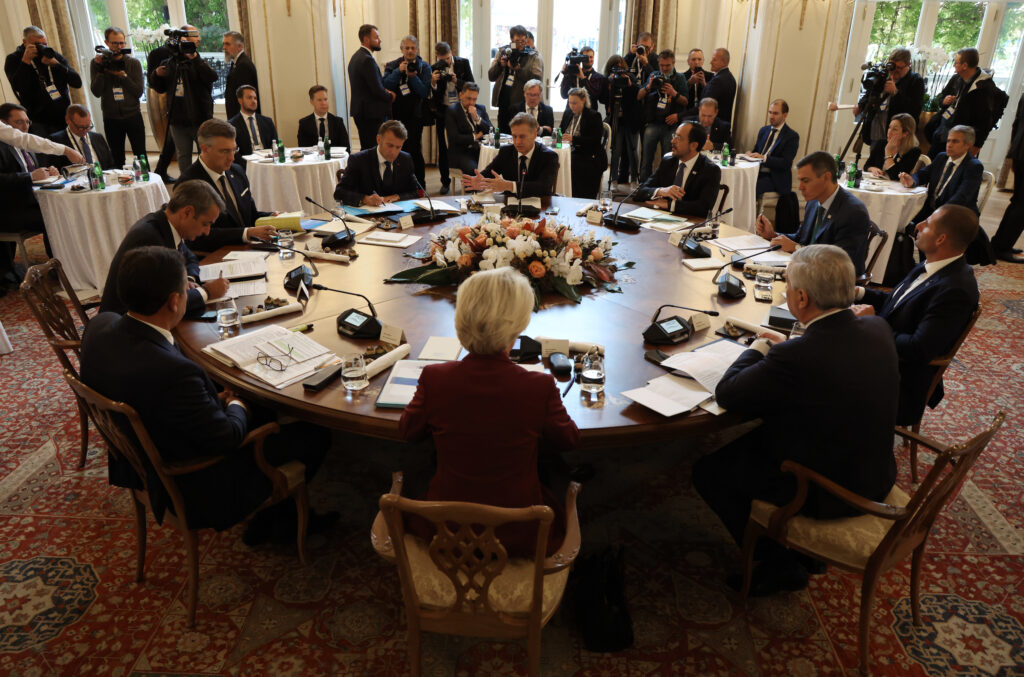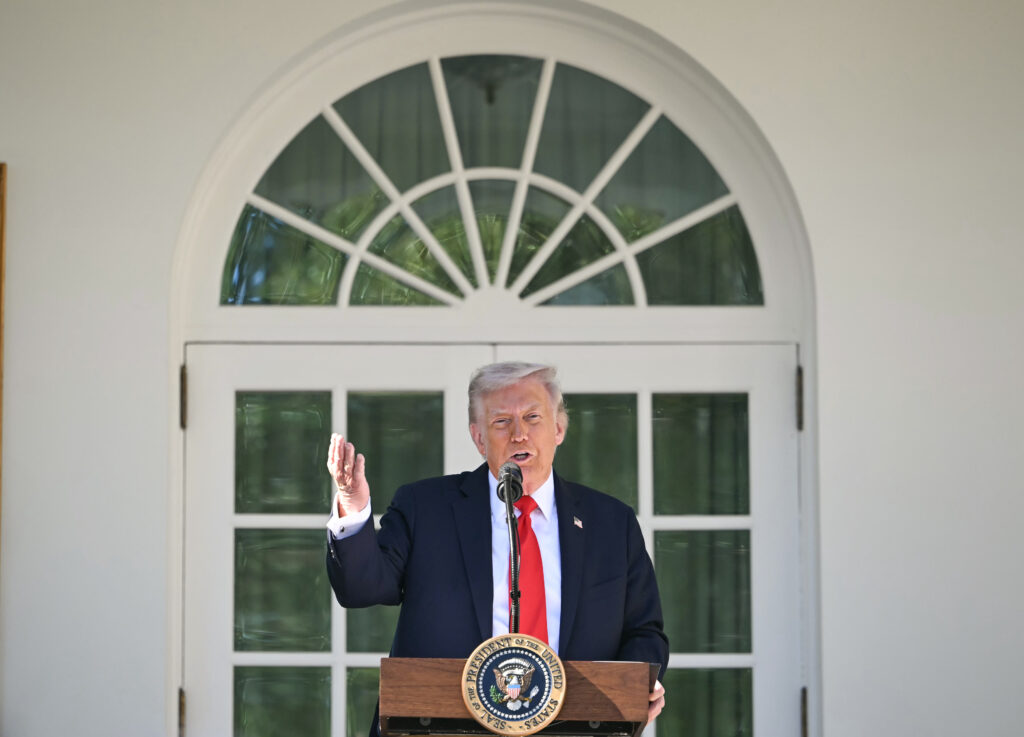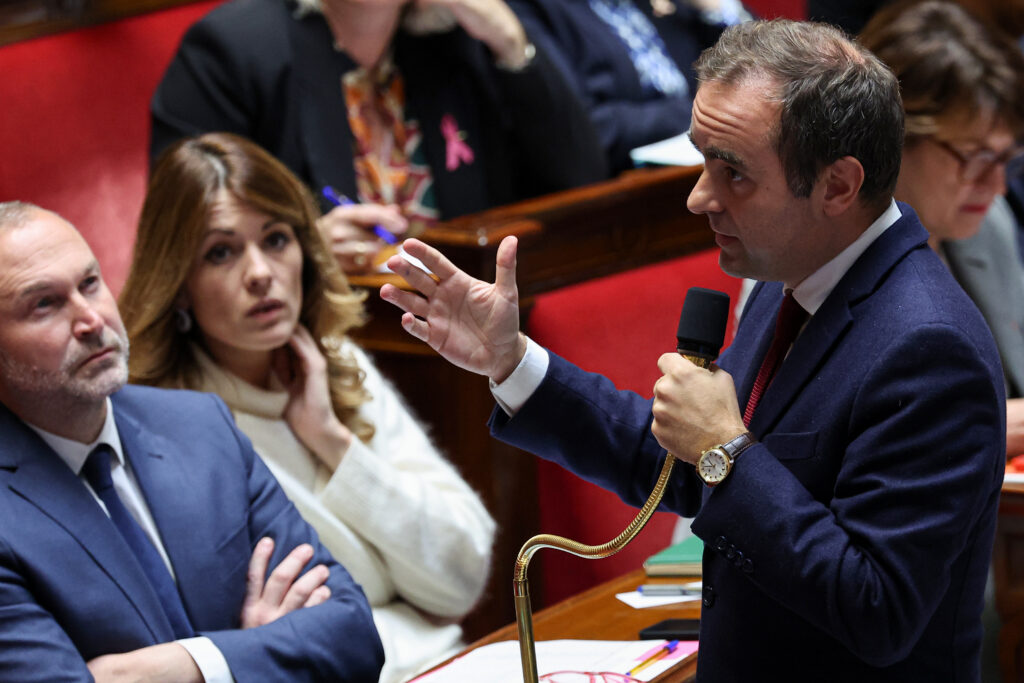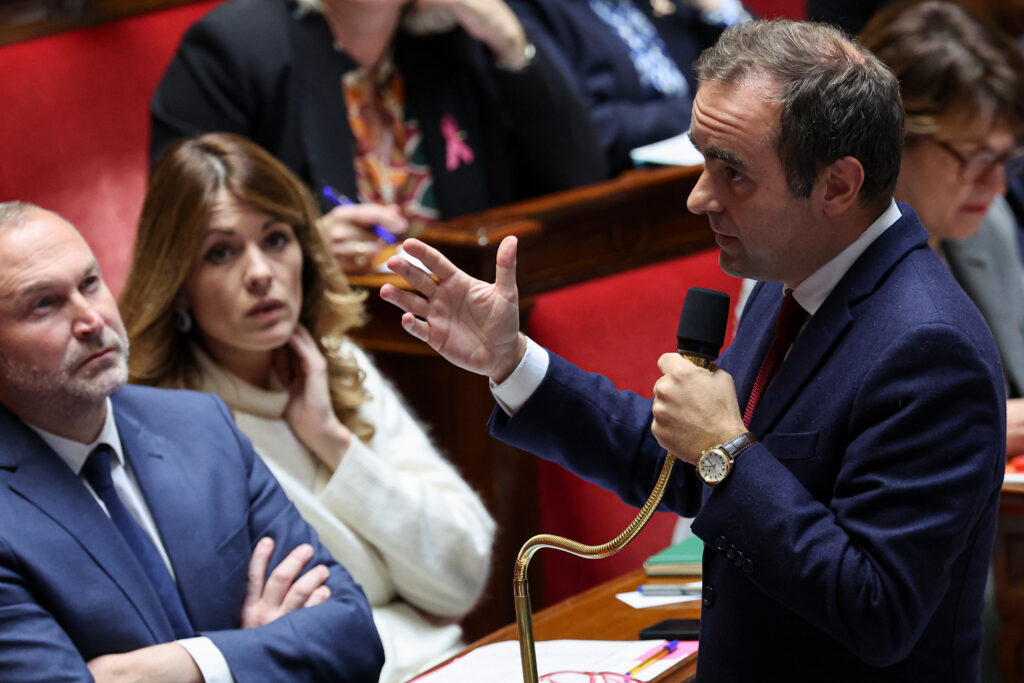Lendemain de tornade à Ermont: des habitants “secoués dans tous les sens”
“Arbres par terre, grues envolées, voitures écrasées”. Après le passage éclair mais dévastateur d’une tornade qui a fait un mort lundi à Ermont (Val-d’Oise), les habitants situés sur sa trajectoire racontent la violence du phénomène.A 21 kilomètres au nord-est de Paris, Ermont (29.000 habitants) a été la plus affectée par l’épisode de vents violents, très soudain et de courte durée, qui a traversé une dizaine de communes du département du Val-d’Oise, lundi autour de 17H45.”Vous voyez la résidence au toit arraché ? C’est la nôtre. Une grue est tombée dessus. On a été évacués dès hier (lundi) soir”, explique Nathanael, 45 ans, désignant un immeuble moderne blanc de cinq étages. Cet employé d’une entreprise ferroviaire n’était pas encore rentré chez lui quand la mini-tornade d’une rare intensité a sévi, très localement, dans son quartier. Ses enfants l’ont filmée, dit-il: “Trois grues sont tombées comme ça, en quelques secondes”.Ces grues disposées sur un chantier de reconstruction de l’Institut médico-éducatif (IME) du Clos-Fleuri se sont effondrées sur le bâtiment de l’IME et sur un immeuble d’habitation voisin, a confirmé mardi à l’AFP le procureur de Pontoise, Guirec le Bras. Un homme de 23 ans a été tué. Il était “l’un des employés de l’entreprise de construction privée qui intervenait sur le chantier”, selon le magistrat.Plusieurs autres victimes sont recensées: quatre personnes blessées sont toujours “en urgence absolue”, et six “en urgence relative”, selon un bilan communiqué lundi soir par la préfecture.Selon une source policière, ces personnes blessées travaillaient également sur le chantier que la tornade a traversé.Une enquête pour homicide involontaire et blessures involontaires dans le cadre du travail a été confiée au service interdépartemental de police judiciaire du Val-d’Oise.”Si les éducateurs de ce centre IME pour polyhandicapés très graves n’avaient pas eu le réflexe de descendre les enfants au rez-de-chaussée et de les mettre dans une pièce sécurisée (…), il y aurait pu avoir des conséquences beaucoup plus graves”, a déclaré Valérie Pécresse, qui s’est déplacée mardi à Ermont et dans d’autres localités touchées.Constatant les dégâts, la présidente de la région Ile-de-France a promis “un fonds d’aide d’urgence d’un million d’euros pour réparer notamment les bâtiments publics”. Bouygues Bâtiment Ile-de-France, qui était chargé du chantier de reconstruction de l’IME, a précisé à l’AFP que le jeune homme décédé et les personnes blessées ne faisaient pas partie de ses effectifs.Sur place, des agents de la police scientifique et technique ont inspecté et photographié les lieux, aidés de drones. Le site a été placé sous scellés.Retraitée de 67 ans, Melaz Tabti, balaie les débris de verre tombés sur le rebord de sa fenêtre. De son premier étage, elle a vue sur l’institut. “J’espère surtout que les blessés vont se remettre”, dit-elle, les larmes aux yeux. – “J’ai cru que j’allais m’envoler” -“Ca m’a secoué dans tous les sens”, assure à l’AFPTV un agent de sûreté aéroportuaire, Boubacar, refusant de donner d’autres éléments d’identité. Lui se trouvait dans sa voiture au moment du passage de la tornade: “J’ai cru que j’allais m’envoler avec le véhicule”.Christiana, habitante d’Ermont dont la voiture a été abîmée, raconte avoir été tout d’abord intriguée par le comportement de son chien qui s’est caché avant le début du phénomène climatique: “Je me suis mise à la fenêtre”, “j’ai vu le tourbillon”, “je me suis réfugiée sous ma table”… Dans le Val-d’Oise, 150 sapeurs-pompiers, personnels du Samu et policiers ont été déployés sur les secteurs d’Ermont, d’Eaubonne, d’Andilly, de Montmorency et de Franconville “pour sécuriser les zones touchées, porter assistance aux habitants et dégager les voies”, avait précisé la préfecture dans la nuit, mentionnant “324 interventions et plus de 700 appels”.Lundi soir, le trafic SNCF, qui avait été fortement impacté après la tornade, a commencé à reprendre progressivement dans les deux sens de circulation entre Ermont-Eaubonne et Pontoise pour les lignes C et H, a indiqué la SNCF à l’AFP. Sur le périmètre du passage de la tornade à Ermont, pompiers, élagueurs ou encore couvreurs se sont activés mardi, de même que des techniciens du gestionnaire de réseau de distribution d’électricité, Enedis. Au total, à 18H, 700 foyers du Val-d’Oise restaient privés d’électricité.En France, en moyenne, on dénombre quelques dizaines de tornades chaque année, d’intensité variable, selon Météo-France. Mais l’effet du réchauffement climatique sur la fréquence, l’intensité et la répartition géographique des tornades reste incertain, souligne l’établissement public.alh-lv-lbx-cbr/bfa/dro








